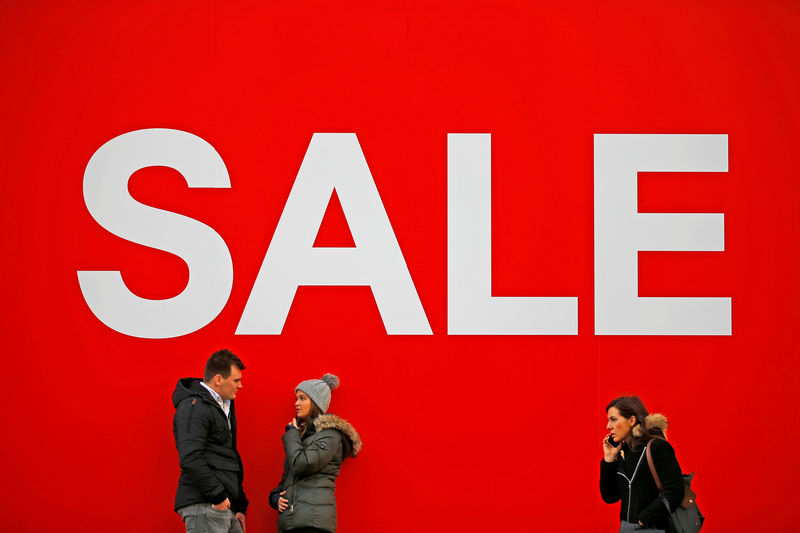By William Schomberg and David Milliken
LONDON (Reuters) - Britain's economy relied on its financially stretched households to power growth in the three months to September as businesses, worried about Brexit, cut investment for the longest period since the global financial crisis, official data indicated.
The figures also showed the country's balance of payments shortfall was its widest in two years.
The Office for National Statistics (ONS) confirmed a preliminary estimate that Britain's economy - the world's fifth-biggest - grew by 0.6 percent in the third quarter from the previous three months.
That was the fastest increase since the end of 2016 as consumers spent heavily during the World Cup soccer tournament and a heat wave.
But more recent data suggested growth is slowing sharply ahead of Britain's exit from the European Union in less than 100 days time, and as the global economy weakens.
Prime Minister Theresa May faces deep opposition in her Conservative Party to the divorce agreement she negotiated with the EU, raising the risk of a "no-deal" departure, something that could hurt the economy.
ONS statistician Rob Kent-Smith said households spent more than they received for an unprecedented eighth quarter in a row, raising questions about their ability to keep on spending and driving the country's economy.
Real household disposable income was flat in the third quarter, the second weakest reading since the start of 2017.
"The longer-term picture remains subdued and business investment has now fallen for three consecutive quarters," Kent Smith said.
The last time businesses cut back on investment for three or more quarters in a row was during the depths of the financial crisis a decade ago.
The Bank of England said on Thursday that companies were scaling back investment due to Brexit uncertainty, although the risk of disruption at the borders had boosted spending on warehousing and port capacity.
Friday's ONS data showed inventories were their highest since the end of 2016, suggesting companies were stockpiling to avoid potential customs delays after Brexit.
Earlier on Friday, private-sector economic surveys showed the weakest consumer sentiment since 2013, and the lowest business morale since 2016's Brexit referendum, as well as the biggest drop in car production since 2009.
On Thursday the BoE lowered its growth forecasts, predicting quarterly expansion of just 0.2 percent for last three months of 2018 and the first three months of 2019.
CURRENT ACCOUNT DEFICIT WIDENS
The ONS said the difference between money flowing in and out of Britain widened to 26.5 billion pounds ($33.5 billion) in the third quarter, the biggest deficit since the third quarter of 2016
It was bigger than all forecasts in a Reuters poll of economists.
BoE Governor Mark Carney has previously warned that the large current account deficit left Britain reliant on "the kindness of strangers".
The deficit was equivalent to 4.9 percent of the country's economic output, again the widest in two years and up from 3.8 percent in the three months to June.
However at least some of the shortfall appeared to be due to positive news - higher profits at foreign-owned British companies, some of which flowed to overseas investors.
The ONS also said Britain narrowed its budget deficit by more than anticipated to 7.2 billion pounds. For the first eight months of the financial year, the deficit was just under 33 billion pounds, down nearly 30 percent from 2017.
Finance minister Philip Hammond has promised that an end to government austerity is within sight, but his plans to relax his grip on public spending could be knocked off course if Britain's economy suffers from a disruptive exit from the EU.

($1 = 0.7905 pounds)